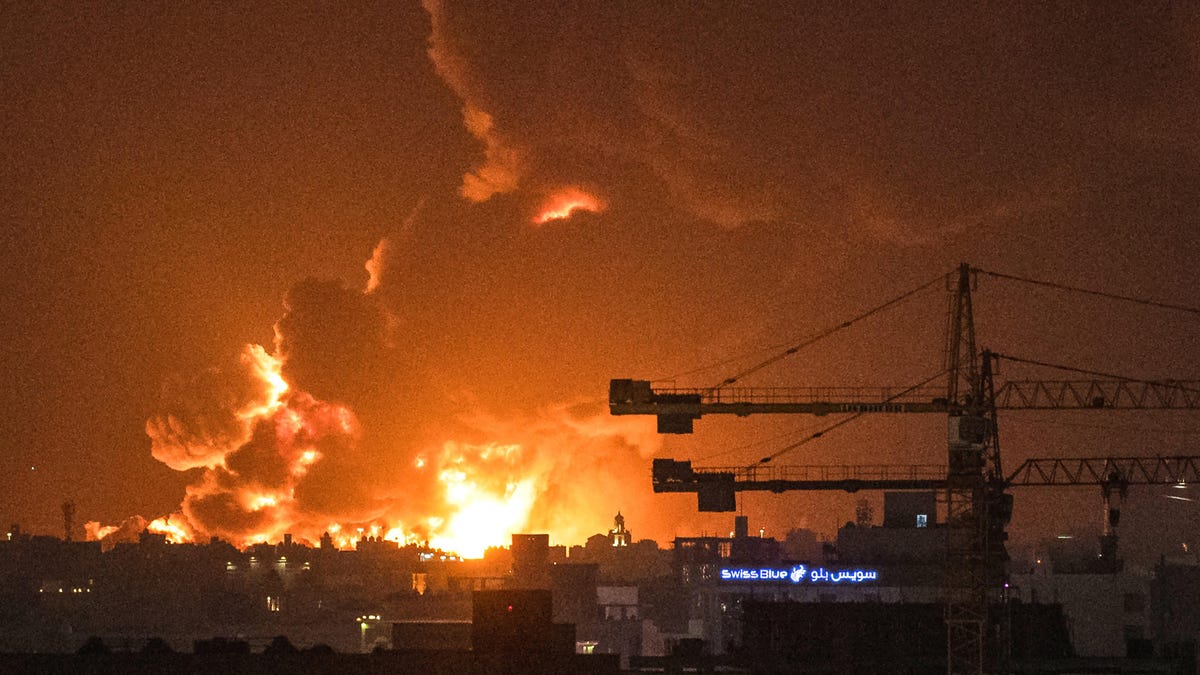F1's Drivers Threatened To Boycott Saudi Arabian GP After Nearby Missile Attack

Aramco oil refinery ablaze in Jeddah after Houthi missile attackPhoto: Andrej Isakovic/AFP (Getty Images)
The commercial partnership between Formula 1 and the Kingdom of Saudi Arabia was seemingly pushed to near breaking point yesterday after an Aramco oil refinery went up in flames. Houthi rebels from Yemen claimed responsibility for the missile strike on the refinery ten miles from the circuit where the Saudi Arabian Grand Prix is taking place this weekend. Later on Friday, F1 announced that the weekend would continue as planned after the race promoters made security reassurances. However, the drivers felt differently.
An hour after Friday’s last practice session, F1 President Stefano Domenicali and the series’ managing director Ross Brawn held a meeting with F1’s drivers over the situation. The meeting dragged on for hours until Domenicali and Brawn left, leaving the drivers to deliberate among themselves. The team principals, many of who had already left the circuit earlier, found their way to the drivers’ meeting. The team bosses eventually left as well to hold their own meeting in race control.
The meeting finally concluded at approximately 2:30 am local time, four and a half hours after the meeting began. Mercedes driver and one of the Grand Prix Drivers’ Association directors George Russell headed to race control presumably to deliver the drivers’ decision to the team bosses as the other drivers left the circuit. A press conference was scheduled at 3:00 am, but Red Bull Racing team principal Christian Horner told the waiting media that “we’ll be racing” as he left the venue.
Mercedes’ George Russell (left) and McLaren team principal Andreas Seidl (right) heading to race controlPhoto: Clive Mason (Getty Images)
According to BBC Sport, the drivers who were against competing in Jeddah were convinced by information given by the team principals. It is mentioned explicitly that “part of this information involved the possible consequences of not racing, such as how easily teams and drivers would be able to leave the country if the race did not happen.”
It wouldn’t be the first time Saudi authorities restrict a foreign event from leaving the country. Similar to Formula 1, World Wrestling Entertainment signed a ten-year, one-billion-dollar agreement with Saudi Arabia in 2018. As a part of the deal, the WWE performs two shows in the country every year. In 2019, CEO Vince McMahon decided to cut the live TV feed for the year’s second show because the company hadn’t received payment for the first show.
Allegedly, Saudi officials, including Crown Prince Mohammed bin Salman, were angered by the WWE’s reaction. The company’s chartered airliner wasn’t allowed to depart, and armed officials didn’t allow passengers to leave the plane’s vicinity until the dispute was resolved.
Realistically, it would be next to impossible for everyone in the F1 paddock to be stopped from leaving Saudi Arabia on commercial flights. More likely, the championship’s freight wouldn’t be allowed through customs out of the country. Though, I wouldn’t want to be in the position of actually considering taking that gamble.
Today is the seventh anniversary of the Saudi-led coalition invasion of Yemen to intervene in a civil war. Saudi Arabia was joined by F1 host countries Bahrain, Qatar, the United Arab Emirates, among others, with the support of both the United States and Al-Qaeda. This war was ongoing well before F1 signed its deal. Formula 1 made its bed when it signed a contract with Saudi Arabia. Now, it has to lie in it.



